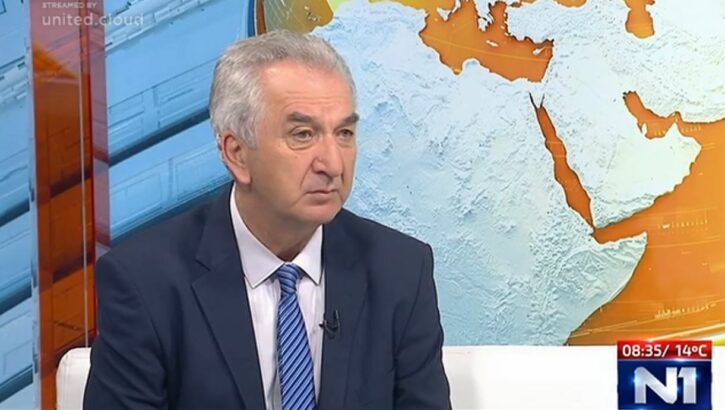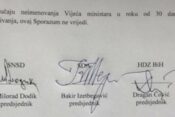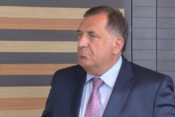
The ongoing back and forth over Bosnia’s future relationship with NATO could pull the country into a crisis and deepen divisions, as the issue has not yet been resolved, yet a key document which leads to membership in the alliance was submitted to the three Presidency members on Wednesday, Bosnian Serb opposition leader Mirko Sarovic told N1 on Thursday.
The main obstacle to forming Bosnia’s new government after the October 2018 election is Bosnia’s path toward NATO membership. Bosnian Serbs are against, Bosnian Croats support it, and Bosniaks insist on it.
The Serb and Croat members of the Presidency said that unless the candidate for prime minister, who is supposed to come from the ranks of the Bosnian Serb Alliance for Independent Social Democrats (SNSD), is prepared to fulfill obligations Bosnia took over years ago regarding NATO, they will not support him taking over the post.
In order to break the deadlock, the three leaders of the right-wing parties which won the election, SNSD’s Milorad Dodik, Bosniak Bakir Izetbegovic from the Party for Democratic Action (SDA) and Croat Dragan Covic from the Croat Democratic Union (HDZ BiH), signed an agreement last Monday.
It includes 12 principles according to which the new government is to be formed, and NATO is mentioned in one of them but very vaguely.
Officials have since then been asking whether Bosnia is going to send its Annual National Programme (ANP) and take the next step toward NATO membership or not.
“It is very problematic since the Agreement between the three parties is only declarative, and it is obvious that that it was put together in a way for everyone to feel like a winner. It was to be expected that it will stumble when details are discussed and everyone interprets it in their own way,” Sarovic said, adding that he doubts a true agreement will be reached.
While Dodik has later been insisting the agreement does not mention the ANP anywhere and that the document will not be send to the NATO headquarters in Brussels, Izetbegovic has been saying that Bosnia's NATO path will continue, only more slowly.
The SDA has meanwhile been advocating sending a modified ANP which would suit everyone in Bosnia.
Sarovic is still Bosnia’s Minister of Foreign Trade and Economic Relations until the new government is formed, and his SDS is a fierce opponent of Dodik’s SNSD. He said his party demanded a direct answer from Dodik – is sending the ANP the cost for forming the new Council of Ministers?
The ANP is the usual framework for cooperation with NATO for a country which reached a decision regarding the alliance, “but it is clear that an agreement has not been reached” in Bosnia, he said.
“The stance of the SDS is that at this moment the NATO issue should not be at the focus of developments. We in the RS are bound by the RS National Assembly Resolution which insists on military neutrality,” he said, referring to a Resolution on Military Neutrality the RS adopted in 2017 and adding that the this was Dodik’s idea.
The moment the ANP is adopted, Bosnia’s NATO Membership Action Plan is activated, which paves the way for NATO membership, he said.
“Whether it will last two or five years, it doesn’t matter, but a decision on whether Bosnia is going into that direction has definitely not been made,” he said.
“I think that should not be a condition for forming the government in Bosnia and Herzegovina. The Council of Ministers should be formed based on some other principles,” he stressed.
“I believe this will divide us again and pull the country into a political crisis,” Sarovic concluded.







